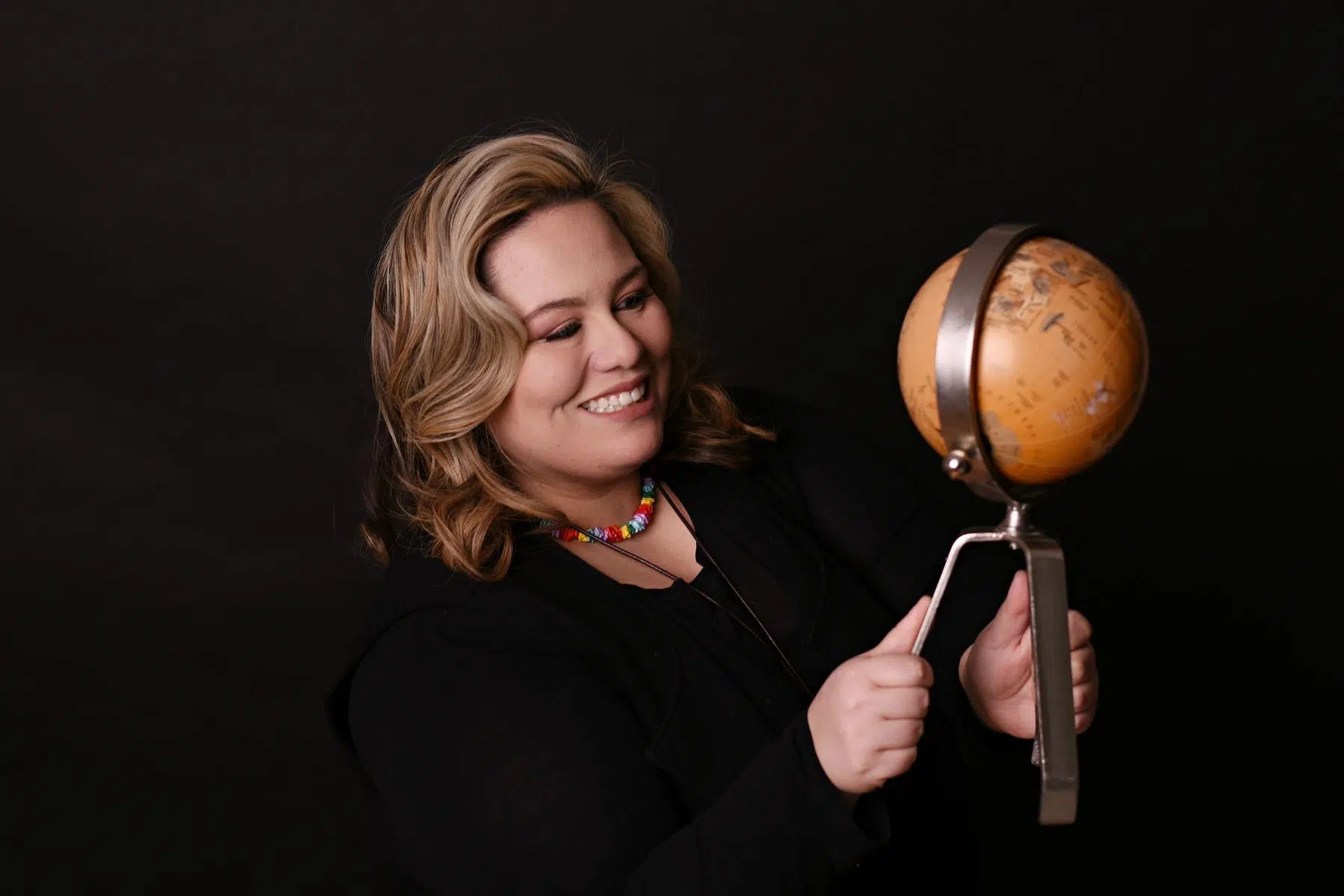
LemonEight founder Claudine Pohl (Submitted)
Claudine Pohl loves the word “Epic,” which she peppers frequently when gushing about her tourism consulting firm, LemonEight. From describing her journey starting her own business to writing LemonEight’s welcome page, the word encompasses her positive and enthusiastic outlook.
For Pohl, LemonEight is turning COVID-19’s impact on the cruise line industry into an opportunity to create better cruise experiences for travelers by teaching leadership and innovation. It’s also created opportunity for her to generate revenue even though no cruise ships are coming to Canada for yet another year.
“Going on your own, being an entrepreneur and having your own business is scary,” says Pohl, who started the company last May. “It’s something new – but the potential to learn and to really ask people for help has taught me so much.”
Pohl entered the cruise industry more than 10 years ago when she became a tour guide for Aquila Tours in Saint John. She helped Aquila grow its international business from eight to 73 countries and in 2015 became its full-time International Business Development Manager and Trainer.

World map of cruise destinations (Submitted)
In mid-March of last year, Canada banned cruise ships from coming to the country until July in response to COVID-19. The ban has since been extended twice and now currently in place until February 28, 2022.
According to the Cruise Lines International Association’s annual report, the global cruise industry was worth about $150-billion USD prior to the pandemic in 2019. Port Saint John’s 2020 annual report recorded the fifth year of cruise sector growth with a total of 79 cruise ships calls made and exceeded 274,000 visitors.
Before the pandemic, Pohl was laying the groundwork for her new business and preparing to attend Sea Trade Cruise Global, the largest conference of its kind in the cruise industry with tens of thousands of attendees.
“I had everything purchased, my flight, place to stay, and then the pandemic hit,” she said.
The upheaval of COVID-19 gave Pohl the time to pinpoint exactly how and what she wanted LemonEight to offer as a business, fueled by inquires from her friends and government representatives from other countries for her cruise expertise.
Thus far LemonEight has provided guidance to fifteen countries around the globe, from Costa Rica, Barbados and Antigua to El Salvador, Grenada and Jamaica.

LemonEight puts “fun” in the fundamentals of cruise leadership and customer experience (Submitted)
Pohl says in the five years she worked on the ground in the Caribbean and Central America, she found leadership in customer experience was missing. “I knew that there was a whole area that needed to be explored with people,” she said.
She later developed Cruise Convos, a series of conversations connecting cruise industry leaders around the globe, from VPs to directors, where they could share industry developments and insights.
“I thought that now was the time to bring a little spark into the cruise industry and to create a little bit of learning, but match it as well with a little bit of fun,” she said.
Because of COVID-19, Pohl says there’s a demand for motivational talks on moving forward and innovation within the cruise industry.
In describing the kinds of services she’s providing, she recalled one motivational talk she held before Christmas about destination welcomes, with attendees taking part from France, Monaco and the USA.
“Getting them together and having them do some team building and motivational exercises really helped them come back and get that creative flow going,” said Pohl.

Image: Mark Leger/Huddle.
LemonEight also partners with Travel Foundation, a UK non-profit that works together with tourism companies and organizations to create positive and environmentally sustainable and tourism opportunities.
“Claudine has tremendous expertise and leadership when it comes to helping develop communities, to develop experiences,” says Travel Foundation CEO Jeremy Sampson.
Pohl says that as a service provider for cruise ships destinations, LemonEight is not directly impacted by Canada’s extended cruise ship ban, but also understands just how much it will impact the cruise sector on a local level.
“The cruise sector leaves approximately $30-million dollars of direct spending by cruise lines, passengers and crew to the Saint John area,” she said. “I have no doubt that the resilience, creativity and determination of New Brunswickers will mean we can build again when it is safe to do so.”
The success of European and Canary Islands cruises in late 2020 offer a model for how the sector can operate in other parts of the world.
“I think the opportunity for people to fall in love with cruising is there,” she said. “It’s going to be a slow process and staggered approach, not at full capacity – things are changing by the day.”
This story was originally published on Huddle.Today – an Acadia Broadcasting Limited content partner.






